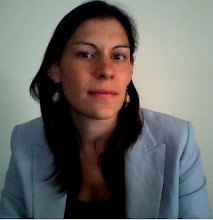Women's Groups Critical of Outcome at Monterrey
Women's Enews
Run Date: 03/26/02
By Laurence Pantin
WEnews correspondent
Many women's groups criticized the document produced by leaders at the U.N. International Conference on Financing for Development, saying that too little money is promised within it and it relies on private investment rather than state action.
MONTERREY, Mexico (WOMENSENEWS)--Women from over 50 countries gathered here for a United Nations development summit rejected its final consensus document, arguing that it doesn't include the necessary commitments from industrialized countries to eradicate poverty, achieve sustained economic growth and promote sustainable development. They said the document failed to address the disproportionately negative effects of globalization on women and girls.
Women's organizations that criticized the so-called Monterey Consensus document pointed to the Millennium Summit of 2000, when governments agreed to reduce poverty by half by 2015, as the promise that went unfulfilled at last week's five-day U.N. International Conference on Financing for Development.
The Monterrey conference, promoted as the meeting at which powerful countries would reach ground-breaking decisions on the refinancing of development initiatives and come up with unique strategies to do so, drew government officials from 179 countries, business leaders, non-governmental organizations and international financial institutions.
The consensus document, however, affirms the current development model of globalization and economic liberalization as the strategy for reducing poverty, but emphasizes that each country has a primary responsibility for its own development.
The United Nations has been a critical space for women to gain recognition of their rights and concerns, said June Zeitlin, executive director of the New York-based Women's Environment and Development Organization, adding that women have a long history of working in the United Nations system. While many women attended the Monterrey conference, she said, their perspectives were not incorporated into the consensus document drawn up within the traditionally male preserve of finance, she said.
One of the Millennium Summit goals was to persuade wealthier nations to decrease the number of poor people by half by 2015 by increasing direct aid to an estimated $50 billion. But the assistance promised during the Monterrey conference by the United States and the European Union over the next several years amounts to much less, said Zeitlin.
Barry Herman, chief of the finance and development branch of the United Nations Department of Economic and Social Affairs, insisted that the consensus affirms the need to "mainstream the gender perspective into development issues" by taking into account that men and women are affected differently by current economic models and development policies.
President W. Bush said the United States beginning in 2004 would raise its aid by 50 percent over three years to a total of $15 billion by 2007, while the Europeans said they would donate approximately four-tenths of a percent of their gross domestic product in 2004--amounts that critics say will not produce the $50 billion.
The conference emphasized the role of trade and private-sector investments to finance development. While recognizing the need for the intervention of the private sector, Mohau Pheko, coordinator of the International Gender and Trade Network and a native of South Africa, criticized the importance it has taken on in development efforts over the last few years.
IMF's Rules in Ghana Left Families without Clean Water
In Ghana, for example, the International Monetary Fund made loans to the government contingent upon the country's agreement that it would no longer subsidize the cost of clean drinking water and that its water utility would be privatized, said Zo Randriamaro, a program manager at the nonprofit Third World Network in Ghana who focuses on gender and economic reforms. As a result of the IMF's policy, poor families cannot afford safe water and are consequently at risk of disease, she said.
"As an African woman, as a feminist, the gains that we have made have been made through the states. They've been made because we need a strong state to distribute all of the resources of our countries," said Pheko. "The private sector's interest is profits, so we cannot depend on the private sector to distribute rights, to distribute resources equally to us. So for us, we need a strong state, a state that can really look at the interests of people."
Noeleen Heyser, executive director of the United Nations Development Fund for Women, said,"Women and children comprise the majority of the marginalized and improverished. Poverty eradication needs to address the issue of feminized poverty."
"Basically, what is good to women is good for development," said Ghana's Randriamaro. "When you look at this process from a gender perspective, then, you are able to tackle all these fundamental issues that should be addressed in this process."
Laurence Pantin is Women's Enews' correspondent in Mexico City.
For more information:
United Nations International Conference on Financing for Development: http://www.un.org/esa/ffd/
Development Alternatives with Women for a New Era: http://www.dawn.org.fj/
Third World Network: http://www.twnside.org.sg/
http://www.womensenews.org/article.cfm/dyn/aid/858/context/archive
Suscribirse a:
Enviar comentarios (Atom)

No hay comentarios:
Publicar un comentario